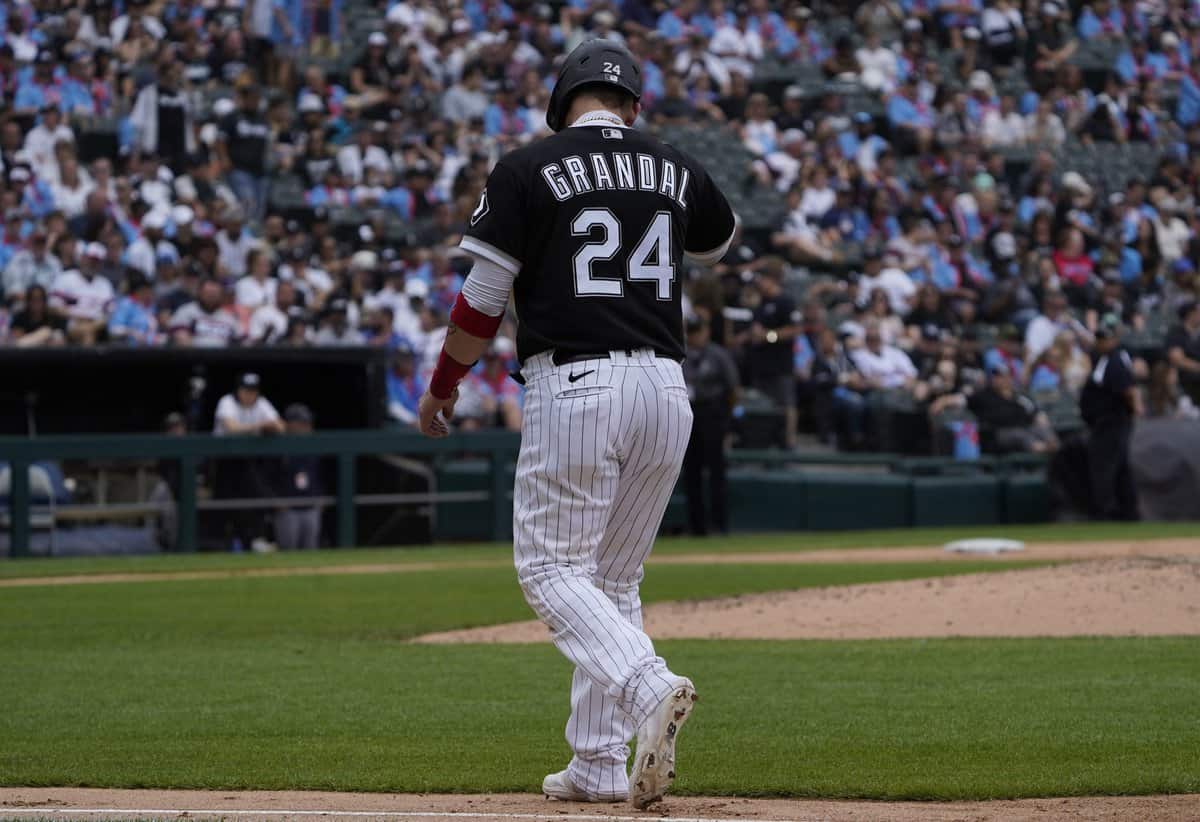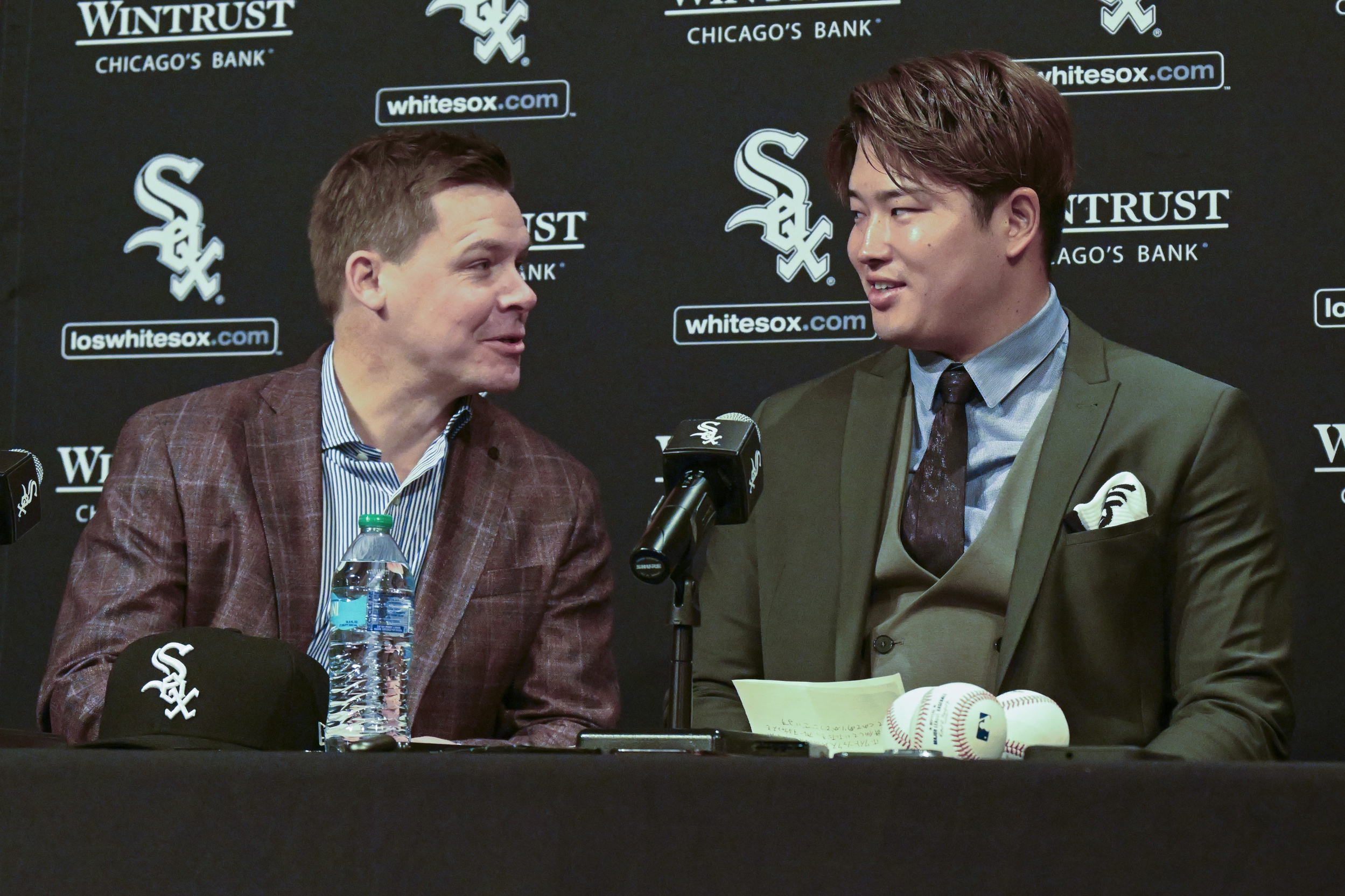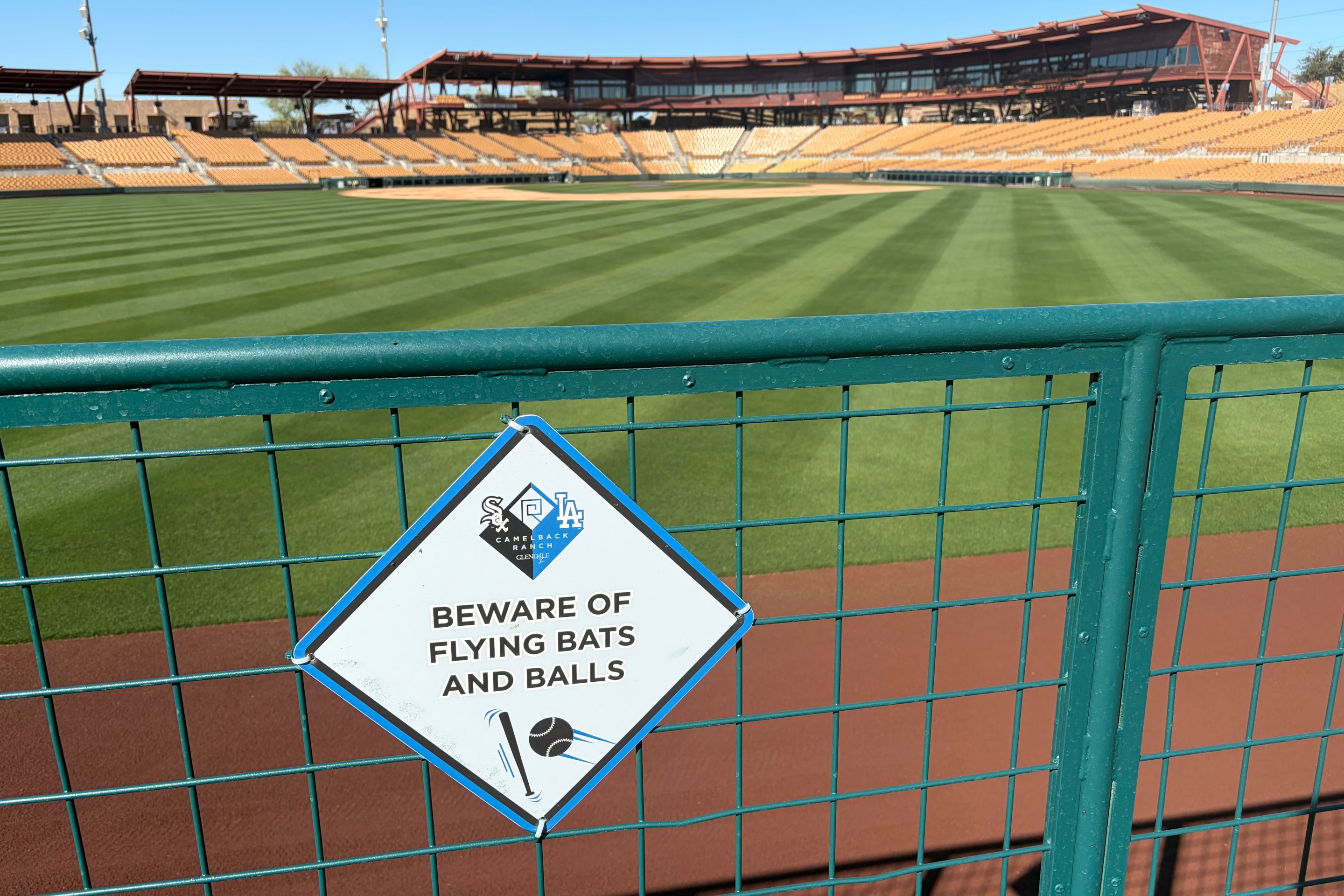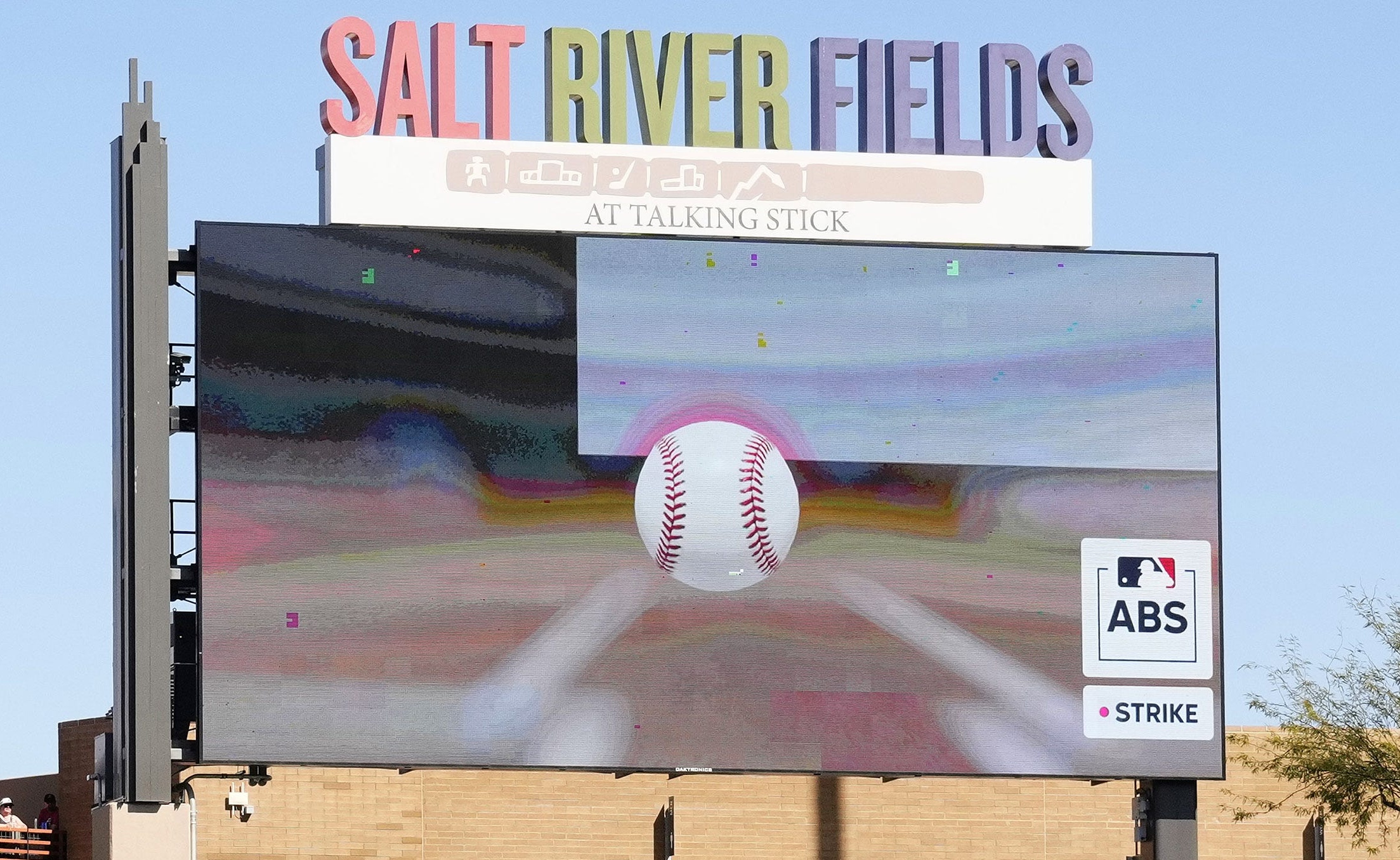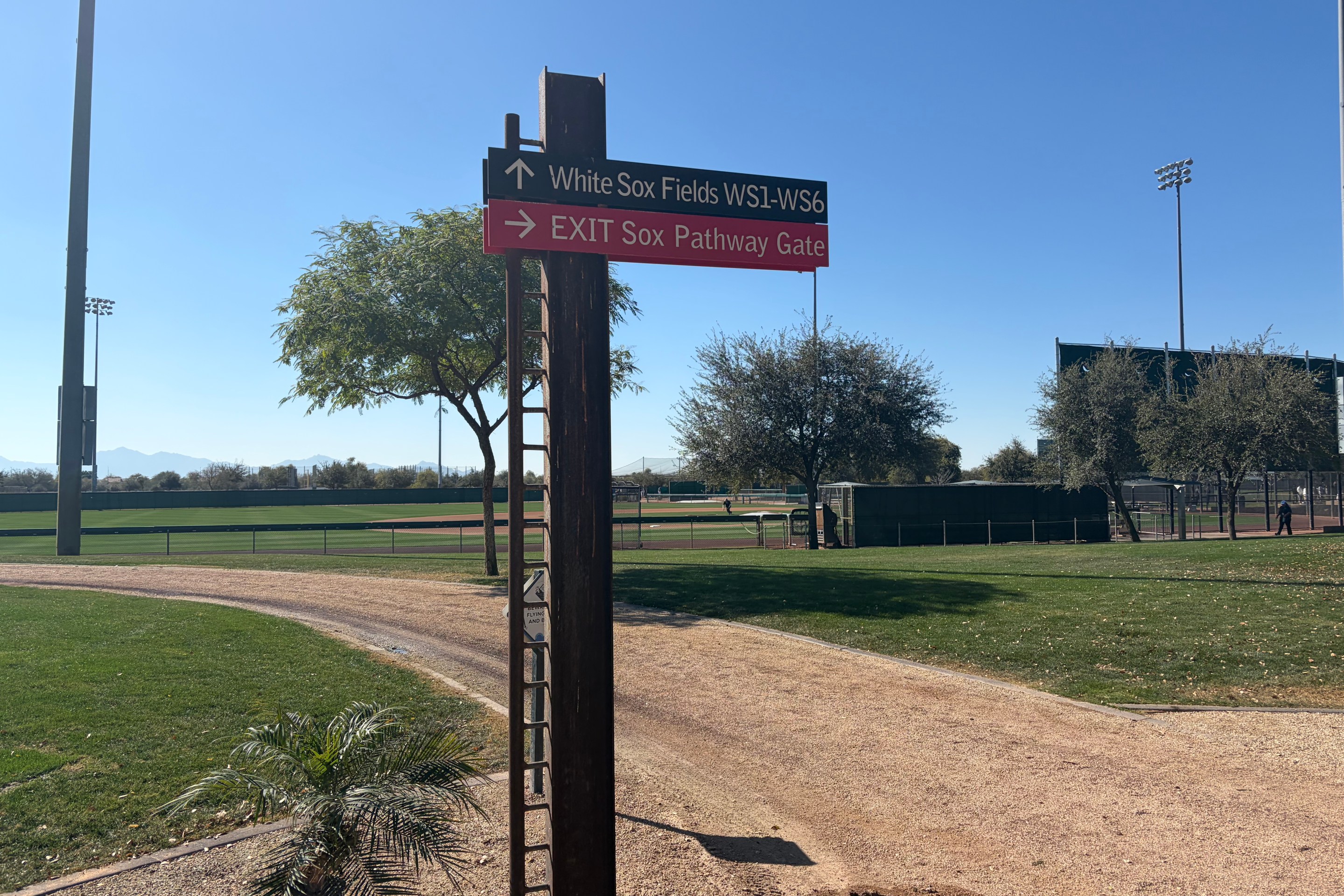For multiple reasons, there was never a particular reason to think a White Sox-James McCann reunion was in the cards.
Most of the doubt stemmed from the White Sox having multiple valid league-minimum backup catcher options in Seby Zavala and Carlos Perez, while McCann hit .220/.282/.328 in his two seasons for the Mets, with two years and $24.25 million left to go. But even if McCann somehow represented a superior or more stable option behind the plate than any White Sox incumbent, we learned on Wednesday evening that he placed the White Sox on his limited no-trade list.
One wonders whether that's more about McCann setting that list when he could dictate the terms of his talent. It's understandable that a McCann at the top of his game would have little interest in going back to the team that relegated him to backup duty after a career year. Smash-cut to two years later when McCann's being kicked to the curb, and perhaps he'd waive the no-trade protection if the White Sox truly presented the best opportunity. Or maybe he secretly loathed Lucas Giolito and never wishes him to succeed at scale again.
It's all moot, because the Mets traded McCann to the Baltimore Orioles for a player to be named later, picking up $19 million of the money remaining.
(Meanwhile, the Mets took a former White Sox after leaving a former White Sox by signing Danny Mendick to a one-year, $1 million contract, so they will probably be moving an infielder at some point.)
Speaking of catchers coming off their worst seasons, Chuck Garfien interviewed Yasmani Grandal on the latest episode of the White Sox Talk Podcast, and Grandal was quite candid about his injuries, and the frustration that stemmed from the overall inability to get it going at the individual and team levels.
While Grandal dealt with knee problems early in the season, he said the back problems that started in mid-June dealt his season a death blow.
“I don’t think too many people understand what it’s like to have a dead leg. When I hurt my back last year, both of my discs bulged and went completely out,” Grandal said. “I was running down to first base against Texas (on June 11). I had a really good game the day before. A really good game the day before that. I was feeling really good at the plate. Running to first, I was like, ‘My hamstring went.’ I kind of slipped when I came out of the box. A day later, I can’t even get out of bed.”
Grandal said he could've underwent back surgery that knocked him out for six weeks, but he thought he needed to give the team what he could. The problem was that his capacities were severely limited by the lack of a base, which Grandal admits now. At the time, he said that a lack of regular playing time behind the plate had hampered his rhythm.
He also admits that professional pride drove his decision to avoid surgery.
“The doctor told me we can do the surgery and it takes ten minutes. It’s just a small incision,” Grandal said. “I felt like I needed to get back to my team and help them out. That’s just the mentality that I had at the time.”
Grandal's desire to play and reluctance to undergo a procedure that may be unnecessary are understandable, but there's never been a satisfactory answer as to why so many players were able to dictate the terms of their playing times while physically unable to perform.
What's weird is that Grandal didn't really get back to the field much quicker without an operation. He missed six weeks either way, and everybody would've been better off had he missed eight, because then Rick Hahn wouldn't have been inspired to trade Reese McGuire for Jake Diekman.
Grandal sounds sincere and motivated about the road ahead, but this is the second at-length description of his offseason program. Any pounds of muscle story will tell you that the more somebody has to talk about what they're doing to improve, the more they desperately need that improvement to be a viable MLB player. A catcher managing a back issue would seem to have a tougher hill to climb.
